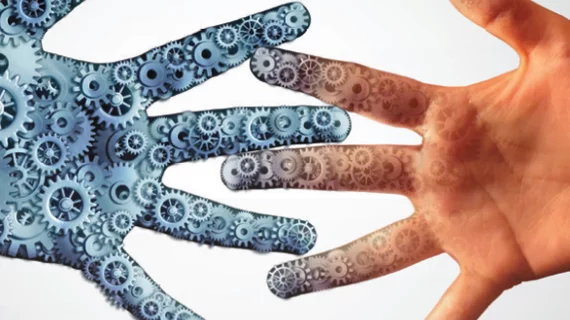Humans Keeping Machines in Check
Mark Michalski, MD, Executive Director of the MGH/BWH Center for Clinical Data Science gets to see, touch or hear about much of what’s happening in artificial intelligence.
“Nearly all the machine learning algorithms that are being assessed, developed or even conceptualized are for radiologist augmentation as opposed to replacement,” he says, offering as examples algorithms that not only prioritize worklists and flag anatomical abnormalities but also calculate probability metrics for critical findings.
“As powerful as these tools are, they still must be checked by a human to get to the levels of confidence that we need,” he says. “That may not always be the case, but it is the case today. Radiologists will be guiding the development of these tools for the foreseeable future, and these tools are not for final diagnosis.”
Who else is engaged in AI? Pathology, radiation oncology, cardiology and neurology, he notes. “In fact, every ‘-ology’ is having this same discussion. It just so happens that radiology is once again at the forefront of a technology revolution.”
